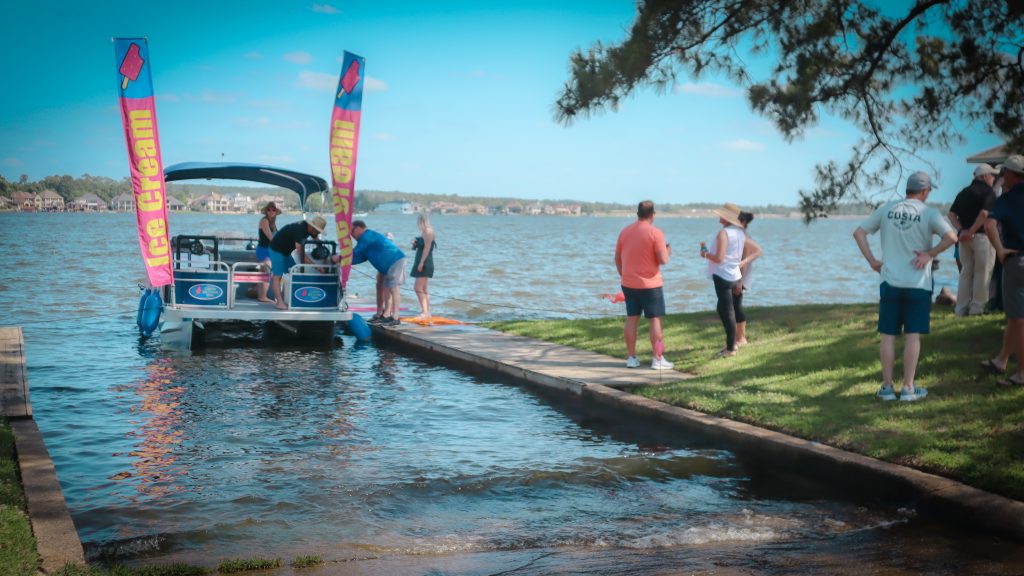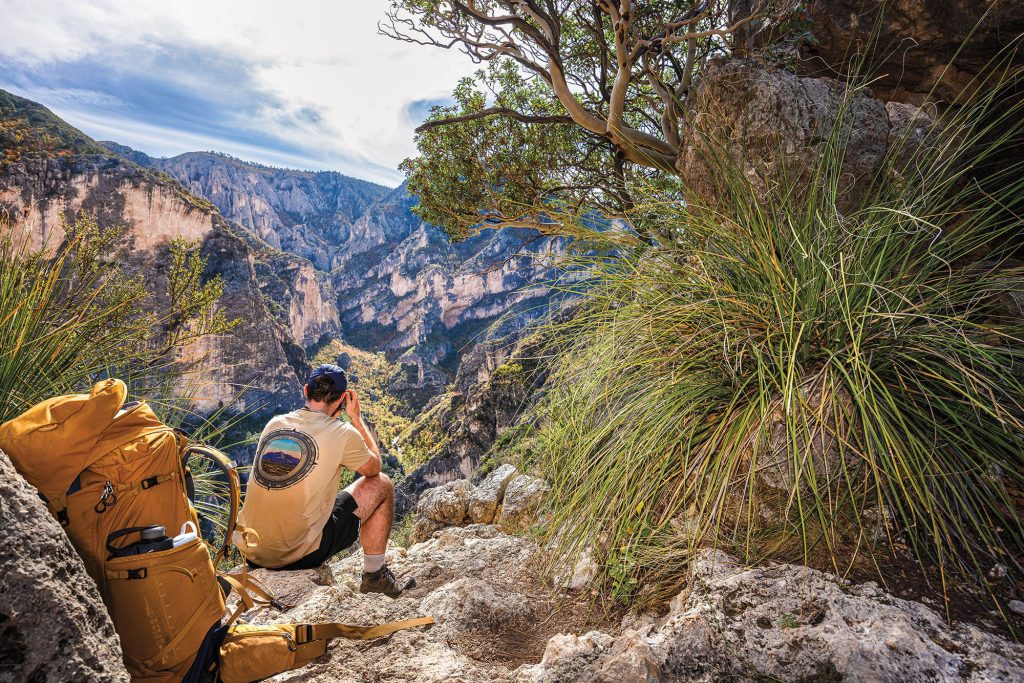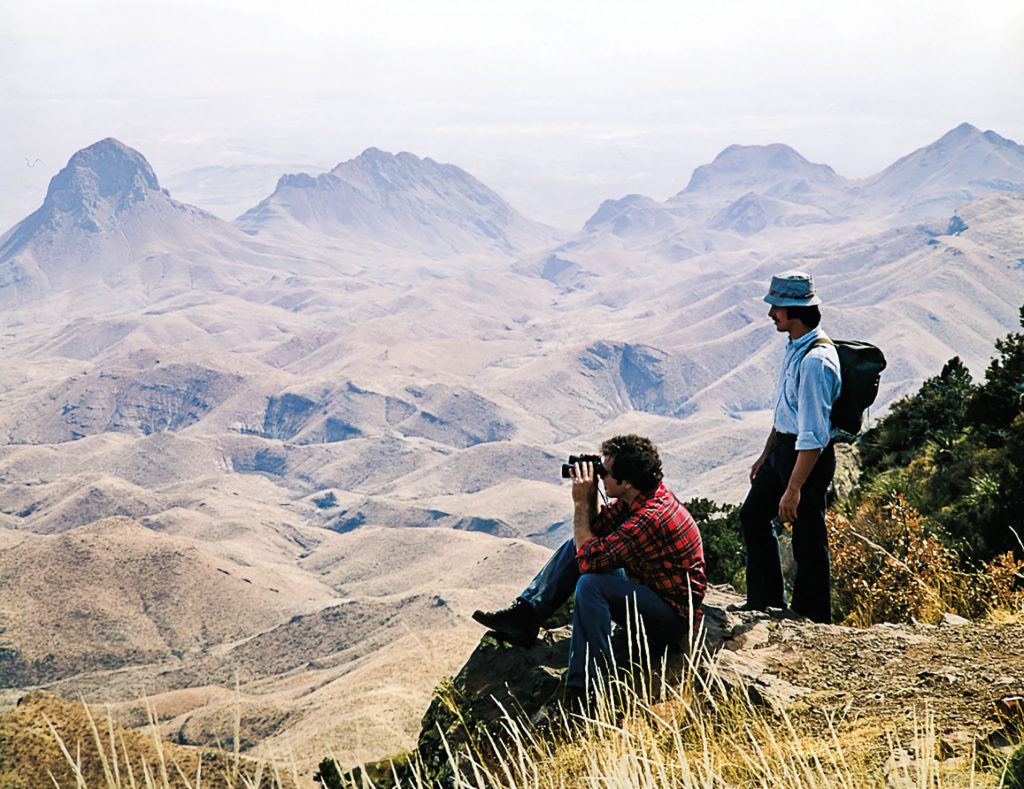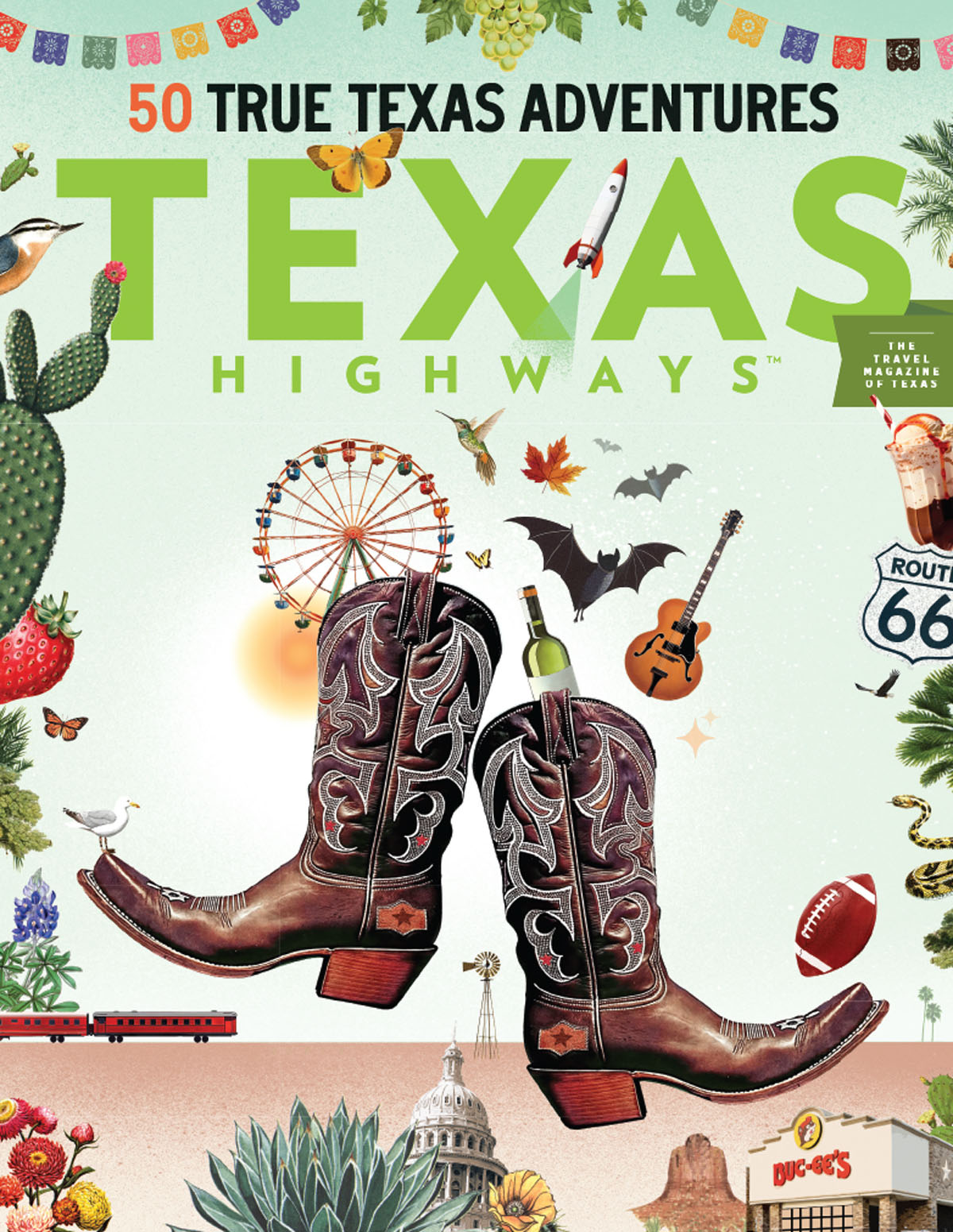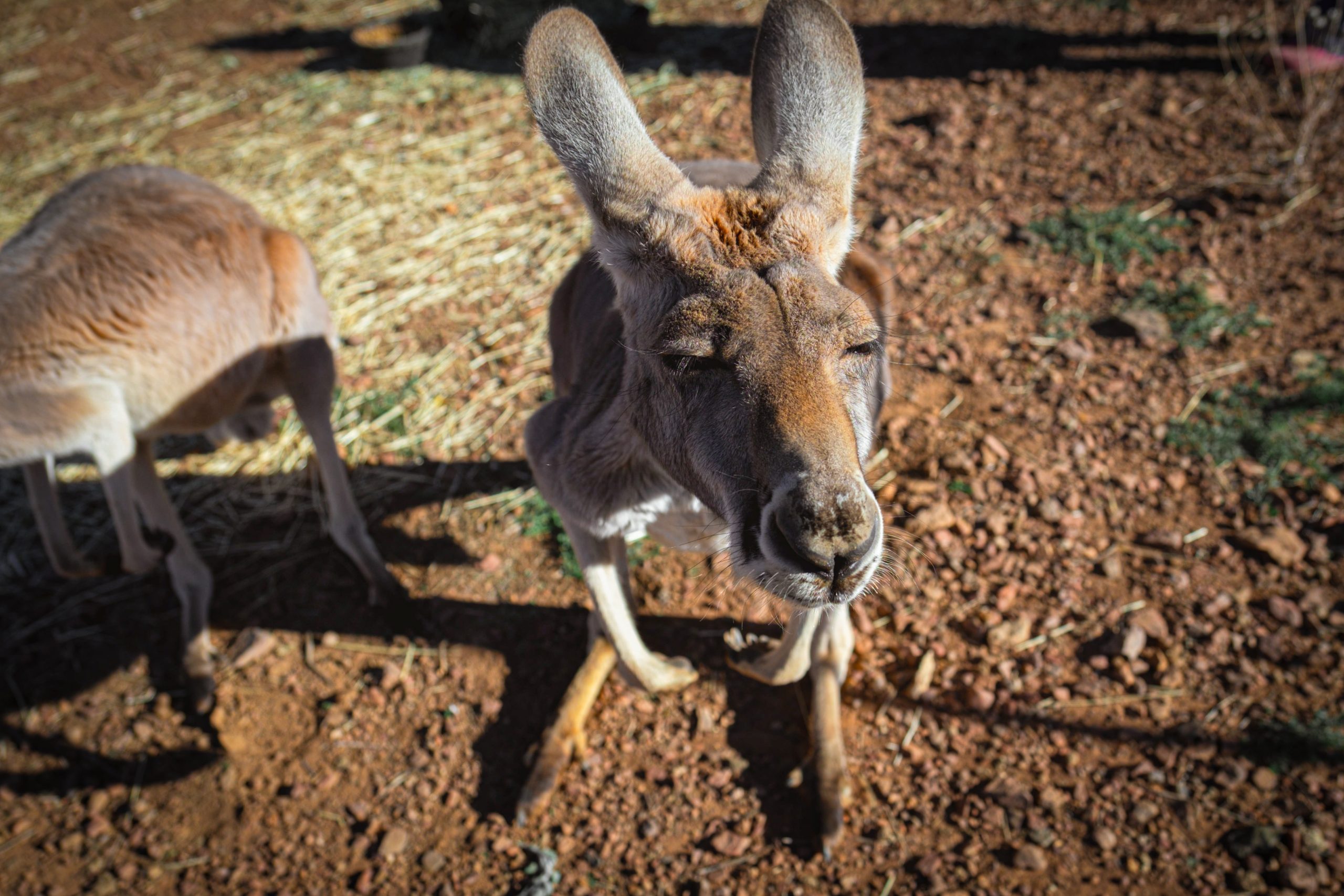
Three red kangaroos—Paisley Rose, Brogan and Sweet Pea—live on Wassermann Wranch in Alpine.
When Heidi Wassermann hosted her last radio show in 2007, she announced that she was moving to West Texas and opening her own ranch.
“Don’t know where it’s going to be, but if you go by a place that says ‘Heidi’s Critter Ranch,’ that’s me,” Wassermann said.
Though the name didn’t stick, the idea did. Today, her place outside of Alpine is called Wassermann Wranch, located 5 miles northwest of town. The ranch offers tours to the general public and is home to donkeys, alpacas, kangaroos, a camel, and more. Each animal has a name and a story that Wassermann affectionately shares with visitors. “We see each one as an individual. We see their personality,” she says.
Wassermann, who is originally from Michigan, and her husband Scott, from San Antonio, were drawn to Alpine after they first visited in 2005. They drove through town on their way to the McDonald Observatory in Fort Davis and realized that it was the place for them to put down their roots after retirement. “I don’t know if you’ve ever had anything just pull at you,” Wassermann says. “I wanted a donkey so bad.”
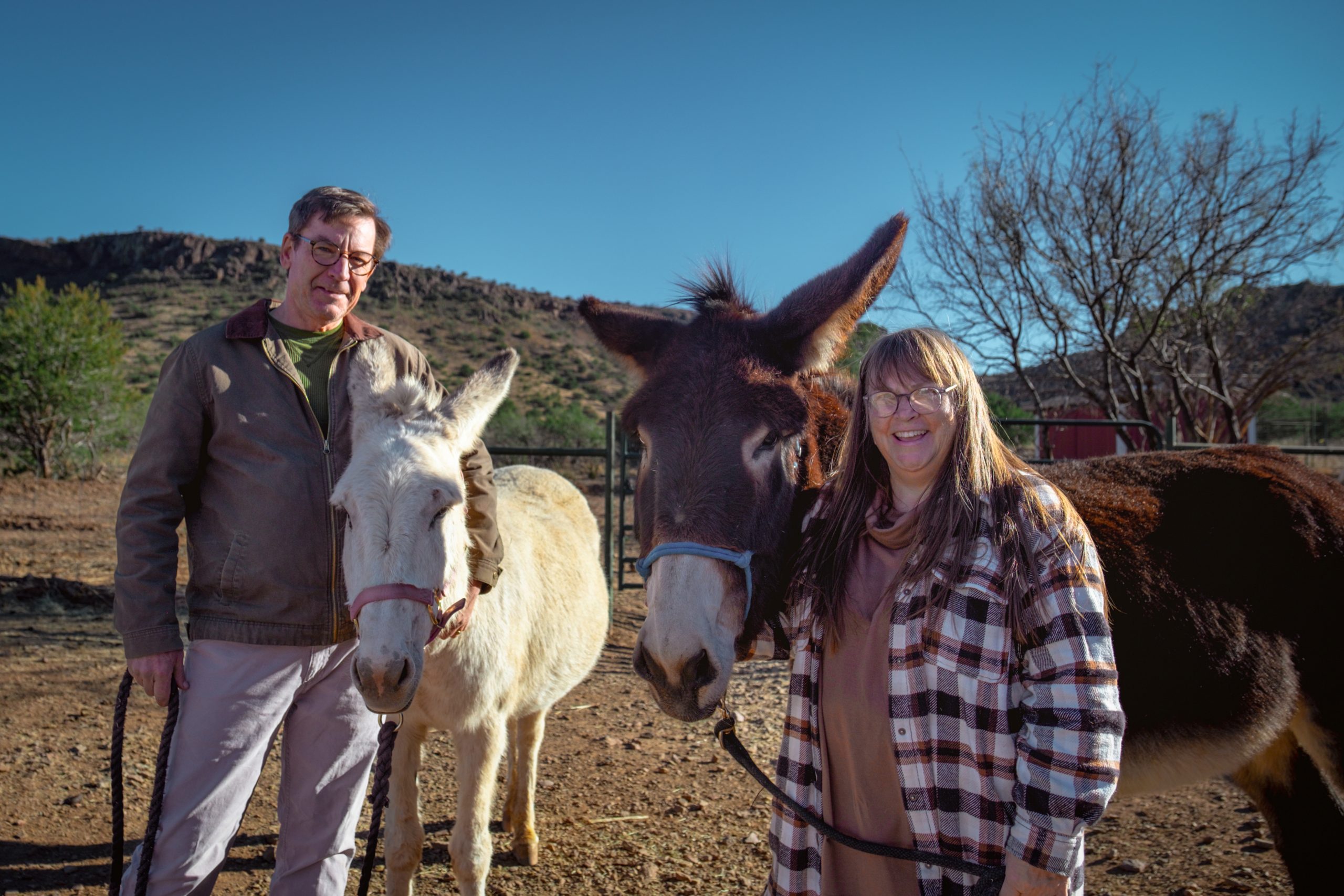
Scott and Heidi Wassermann with their donkeys.
On the Range
Wassermann Wranch
Address: 10 Rim Road, Alpine
Call 432-837-7345 or email [email protected] to book a tour in advance. Tours cost $12/person.
Wassermann’s Retail Store
Address: 106 N. 5th St.
Hours: Thu-Fri 11 a.m.-5 p.m.
Phone: 432-837-7345
wassermannwranch.com
There are three different types of donkeys at the Wassermann Wranch. It started with D.D., a white standard donkey, who was pregnant when she arrived in 2010. She gave birth to Pumpkin, who performs in Alpine’s annual live nativity scene and as a tequila donkey at weddings. Ellie Victoria is half mammoth—which are considered endangered and much larger in size—and half Poitou, like her dad, Bastien. A Poitou Donkey Census has estimated 70 purebreds in the United States and fewer than 500 in the world. “We’ve made the decision that if there’s a Poitou breeding program out there that would like to add [Bastien], we’ll let him go,” Wassermann says.
Also on the ranch are alpacas named Anais, Sally, and Pearl; a llama named Dottie Llama; and three red kangaroos, Paisley Rose, Brogan and Sweet Pea. Before the COVID-19 pandemic, the Wassermanns hosted field trips for over 1,000 elementary school students in the region. To add an educational component to these trips, they had a contest to name Paisley Rose in 2017 and threw a gender reveal party for her first joey. It was a boy (Brogan).
The Wassermanns are known for taking in animals and rehabilitating wildlife, always with game warden’s permission. They received Spur the miniature horse after his young owner outgrew him. A game warden brought in a deer they named Jane Doe and another guy brought in Delilah, a mule deer, after she was hit by a car. The couple didn’t think Deliliah would make it, but she eventually bounced back. After the fawns were healthy, they were released to live outside and come and go as they wish. They always return for breakfast and dinner.
Carl the Camel, who turned 2 in February, is the most recent addition to the family. People can occasionally see him walking around Alpine with Scott. A local ranch hand found the injured camel and took him to veterinarian Ray Allen at Alpine Veterinary Clinic to nurse him back to health. He was bottle fed until the Wassermanns took him in. “We were suckers enough to say ok,” Scott says.
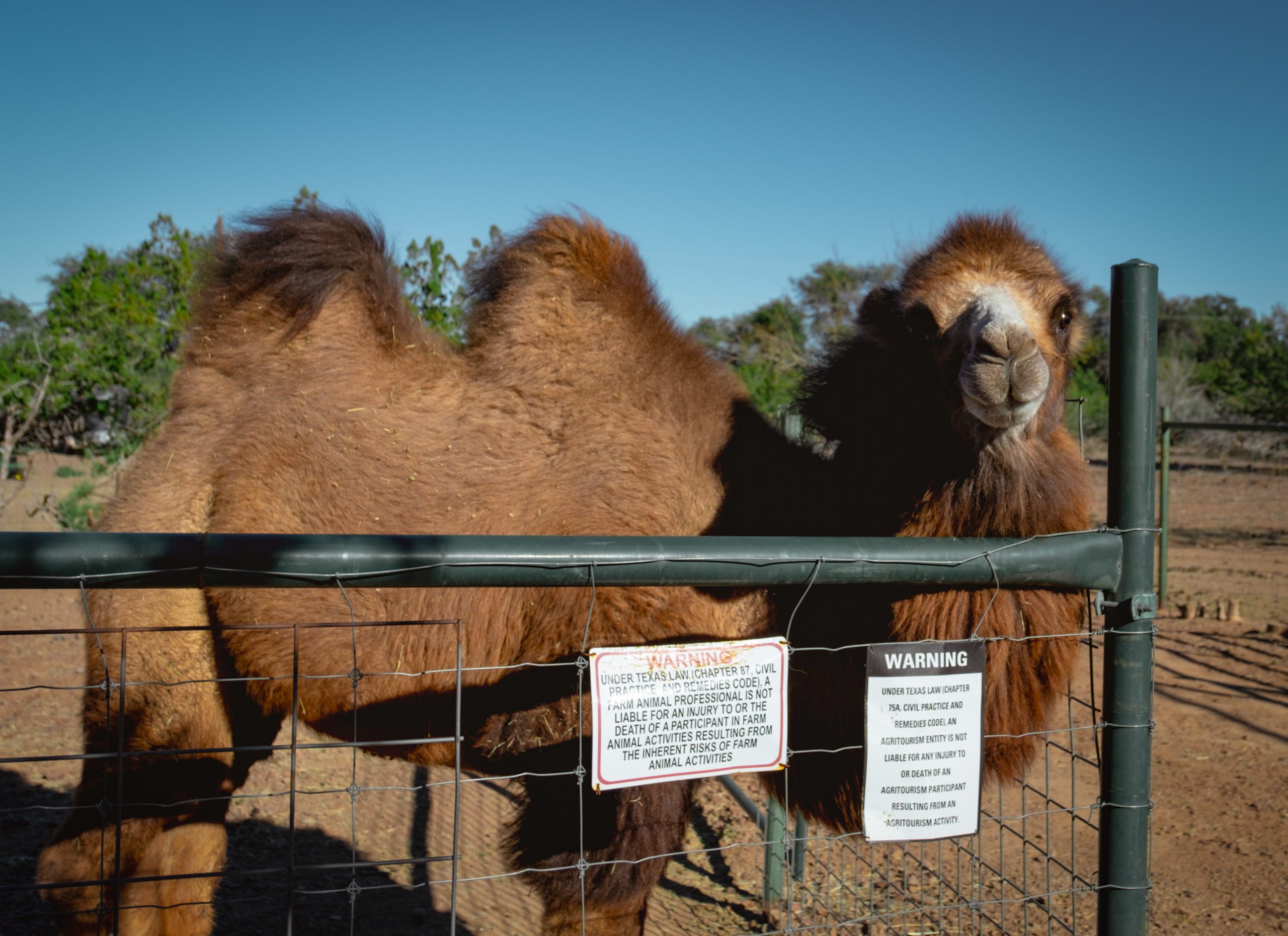
Carl the Camel can sometimes be found walking the streets of downtown Alpine with Scott.
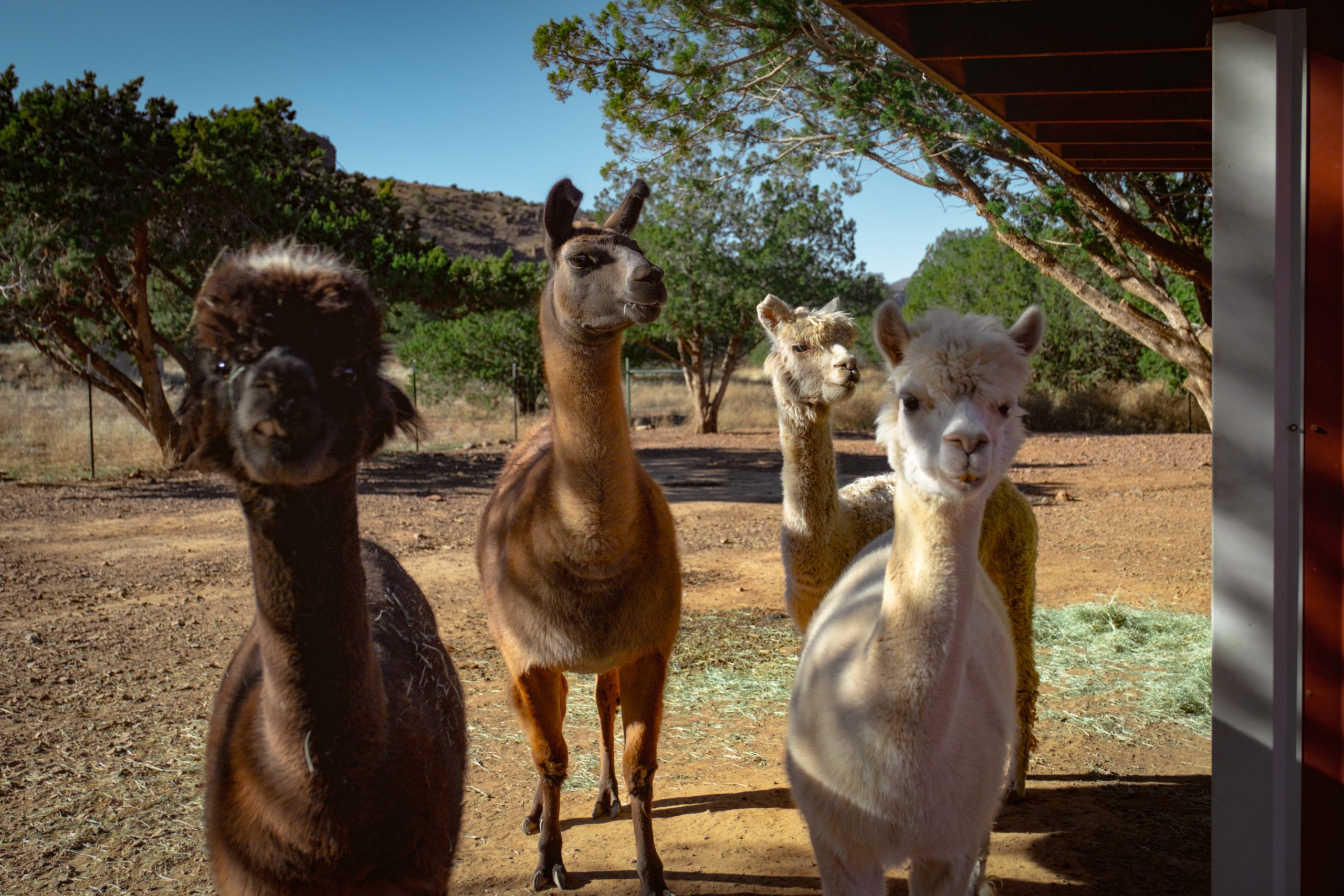
Three alpacas named Anais, Sally, and Pearl and a llama named Dottie Llama live on the ranch.
The Wassermans also run a shop next door to the Holland Hotel in downtown Alpine. They sell items such as plush toys, jewelry, and ornaments related to the animals at the ranch. The towels and aprons that are embroidered with “I love Carl” are such a popular item that Wassermann can’t keep them in stock. They also sell scarves, socks, and sweaters that are made from alpaca fleece that is soft, lightweight, and hypoallergenic. “I sold like 1,000 pairs of [alpaca] socks last year,” Wassermann says.
They also offer honorary animal adoptions on their website. People who sign up receive a letter from one of the animals on a regular basis.
The animals at Wassermann Wranch are open and friendly. During tours, each one approaches visitors and lets people pet them. Wassermann considers them all safe, but will warn you if one of them is having a bad day. One thing she likes to do during a tour is have the guests take a moment and allow the donkeys to approach them. She says she can see them relax when that happens.
When Wassermann announced in 2020 that their alpaca Zeb-ed-dee-doo-dah had died, people not only shared their condolences, they also shared photos they took with him. It was a nice reminder that people also get attached to these critters.
“These guys really touch their hearts,” Wassermann says. “I think we’ve just been fortunate in the animals that have come our way.”

